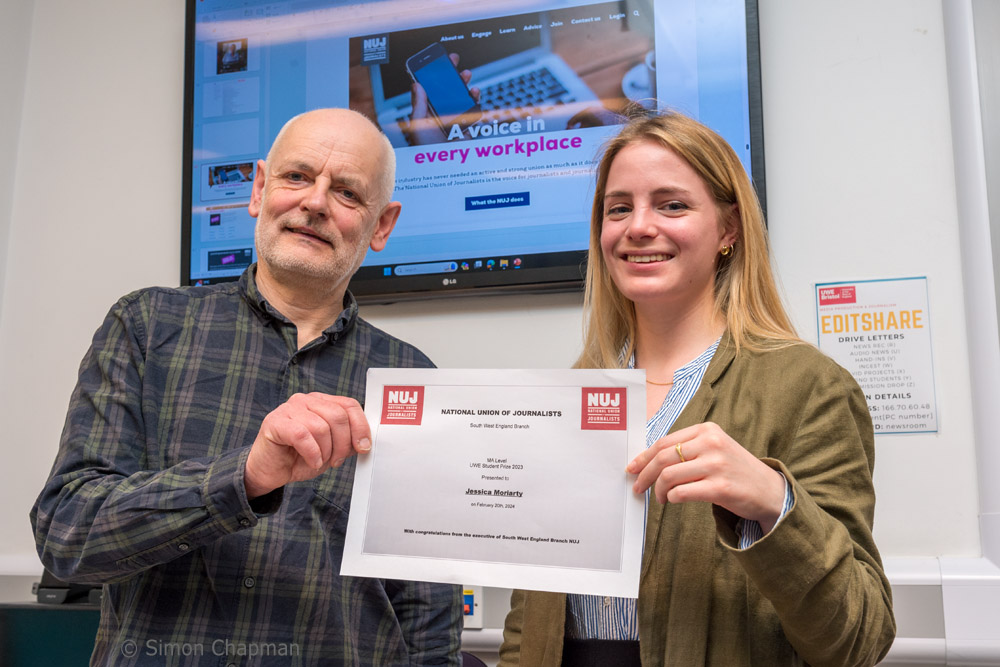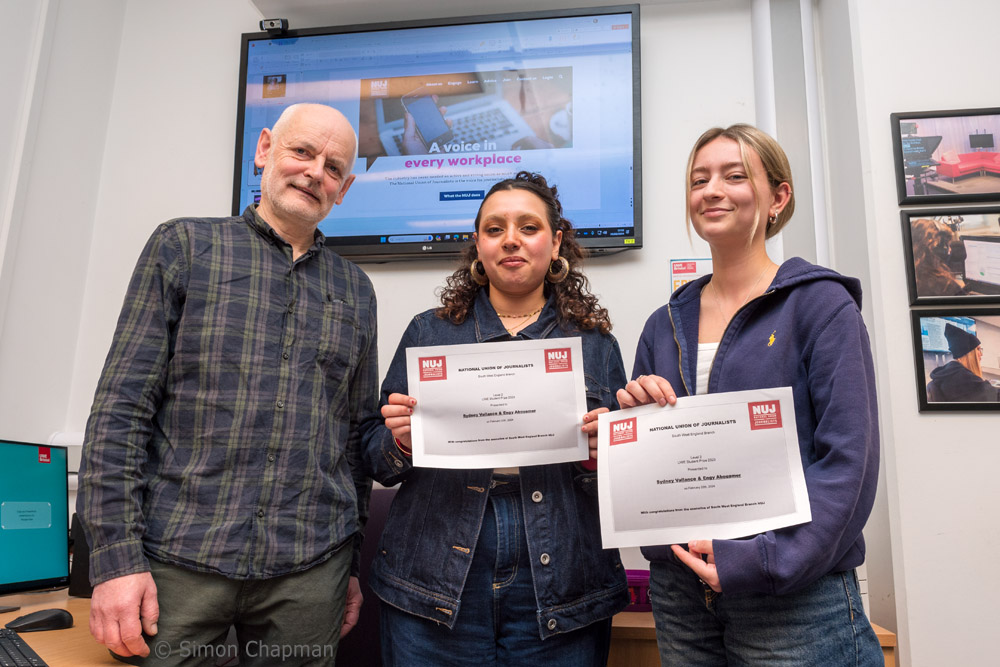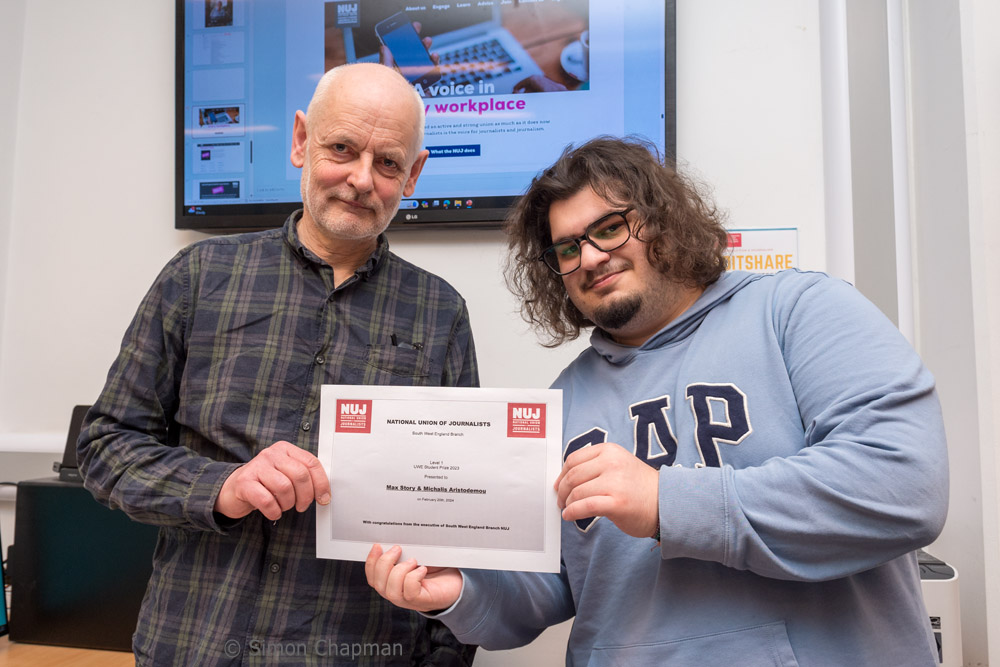
JOURNALISM students at the University of the West of England heard about the ethical considerations affecting journalists covering the conflict in Israel and Gaza as part of a presentation by South West England NUJ.
Branch chair Paul Breeden led the students through some of the issues thrown up by the continuing conflict, not least the impact on the Palestinian journalists reporting from inside Gaza.
An estimated one in 10 Gazan journalists have been killed, Breeden told the students, leading the NUJ to call on Israel to fulfil its legal obligations to protect media workers, and urging the International Criminal Court to put more resources into investigating suspected targeting by Israel of reporters.
This is not taking sides, Breeden said, stressing that the NUJ and its international partner the the IFJ (International Federation of Journalists) value equally the loss of every one of the 102 of their colleagues killed since the Hamas atrocities of October 7th, 2023, including four Israelis and three Lebanese.
Also under discussion were the value of open source reporting to attempt to decide between competing claims in the conflict, the trustworthiness of various sources, and the differences in the way the conflict is portrayed in different countries.
Research shows that among five major media outlets, including the BBC, more respondents considered coverage of the conflict to be evenly balance than those who thought it was biased to one side.
But readers and viewers who declared themselves allied to one side were more likely to see bias against them – pro-Israeli readers were more likely to see coverage as pro-Palestine, and conversely pro-Palestine readers were likely, in the same proportion, to see the same stories as leaning toward Israel.
This means that sometimes it is impossible for coverage which journalists intend to be evenhanded to satisfy those who have strong views in either direction, said Breeden.
The occasion was also used to present prizes to the winners of the SWE NUJ student awards, given annually to the students in each year group who entered the best pieces of work in whatever medium.
In L1 (the students’ first year) the £50 prize was taken by Max Story and Michalis Aristodemou for their “laid back” and “nicely rounded” (according to the judges) inquiry into the lack of housing in Bristol.
Sydney Vallance and Engy Abouamer won the L2 award for their well-researched report on ecological restoration project in Stoke Park.
The L3 award was presented after graduation last year to Edith Attridge for her thoughtful piece on regenerating the East End of London.
The prize at MA level was taken by Jessica Moriarty for her longform, multimedia work on the implications of AI. This was the year’s standout entry, said Breeden, managing to be a deep dive which never got lost and maintained the interest of the reader. It wasn’t surprising that Jess, who has now left the university, has already won a job as Local Democracy Reporter for Wiltshire.
The students were encouraged to join the NUJ as likely to be the only constant in their careers, which are likely to see more change than any generation of journalists before them. Said Breeden, the NUJ campaigns on ethics, wins better pay, fights bad working conditions and provides an invaluable network which will always protect members.

